Departmental news
Colon cancer breakthrough could lead to prevention
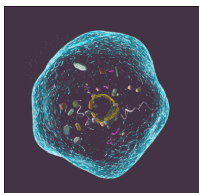 Colon cancer, Crohn’s, and other diseases of the gut could be better treated – or even prevented – thanks to a new link between inflammation and a common cellular process, established by Dr Ioannis Nezis and colleagues.
Colon cancer, Crohn’s, and other diseases of the gut could be better treated – or even prevented – thanks to a new link between inflammation and a common cellular process, established by Dr Ioannis Nezis and colleagues.
Crops evolving ten millennia before experts thought
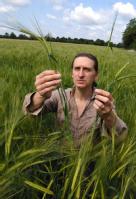 Ancient hunter-gatherers began to systemically affect the evolution of crops up to thirty thousand years ago – around ten millennia before experts previously thought – according to new research by Professor Robin Allaby.
Ancient hunter-gatherers began to systemically affect the evolution of crops up to thirty thousand years ago – around ten millennia before experts previously thought – according to new research by Professor Robin Allaby.
Read Press Release
VirionHealth Raises Series A Funding from Abingworth
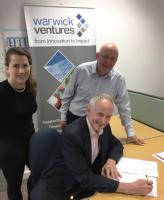 VirionHealth Ltd, a new biotechnology company developing novel therapeutics for respiratory viral infections, today announced that it has raised up to £13 million in Series A funding from Abingworth, the international investment group dedicated to life sciences.
VirionHealth Ltd, a new biotechnology company developing novel therapeutics for respiratory viral infections, today announced that it has raised up to £13 million in Series A funding from Abingworth, the international investment group dedicated to life sciences.
VirionHealth, founded on pioneering research by Professors Nigel Dimmock and Andrew Easton at the University of Warwick’s School of Life Sciences, is a world leader in the development of precisely engineered, non-infectious, defective interfering particles. This new class of biological antiviral acts by outcompeting replication of infectious viruses to both prevent and treat viral infections.
(Image: Laura Lane from Warwick Ventures, Professor Andrew Easton and Professor Nigel Dimmock on day of signing)
Brain cells that control appetite identified for first time
 Dieting could be revolutionised, thanks to the ground-breaking discovery of the key brain cells which control our appetite. Professor Nicholas Dale in the School of Life Sciences has identified for the first time that tanycytes – cells found in part of the brain that controls energy levels – detect nutrients in food and tell the brain directly about the food we have eaten.
Dieting could be revolutionised, thanks to the ground-breaking discovery of the key brain cells which control our appetite. Professor Nicholas Dale in the School of Life Sciences has identified for the first time that tanycytes – cells found in part of the brain that controls energy levels – detect nutrients in food and tell the brain directly about the food we have eaten.
Read Press Release
Antimicrobial resistance tackled with new £2.85m PhD Training Programme
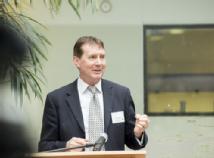 New scientists will be trained to explore ways to tackle antimicrobial resistance - one of the greatest emerging threats to human health – with the creation of a £2.85m national PhD Training Programme, funded by the Medical Research Council and part-led by the University of Warwick.
New scientists will be trained to explore ways to tackle antimicrobial resistance - one of the greatest emerging threats to human health – with the creation of a £2.85m national PhD Training Programme, funded by the Medical Research Council and part-led by the University of Warwick.
Professor Chris Dowson from Warwick’s School of Life Sciences is part of the Programme Leadership Team, and has been integrally involved with the establishment of the training programme.
Read Press Release
Cells programmed like computers to fight disease
 Cells can be programmed like a computer to fight cancer, influenza, and other serious conditions – thanks to a breakthrough in synthetic biology by the University of Warwick.
Cells can be programmed like a computer to fight cancer, influenza, and other serious conditions – thanks to a breakthrough in synthetic biology by the University of Warwick.
Led by Professor Alfonso Jaramillo in the School of Life Sciences, new research has discovered that a common molecule - ribonucleic acid (RNA), which is produced abundantly by humans, plants and animals - can be genetically engineered to allow scientists to program the actions of a cell.
Read Press Release
Asian hornet “adds to growing number of threats to honeybees” – Warwick research on BBC
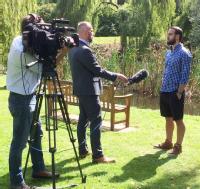 Research to help prevent the spread of Asian hornet across the UK - carried out by the University of Warwick - was recently featured on BBC Midlands Today and BBC Online.
Research to help prevent the spread of Asian hornet across the UK - carried out by the University of Warwick - was recently featured on BBC Midlands Today and BBC Online.
Led by the Warwick’s Zeeman Institute for Systems Biology & Infectious Disease Epidemiology Research (SBIDER), the recent study predicts that Asian hornet – a voracious predator of honey bees and other beneficial insects – could colonise the UK within two decades.
The BBC’s David Gregory-Kumar interviewed Dr Daniel Franklin at the School of Life Sciences.
Asian hornet to colonise UK within two decades without action
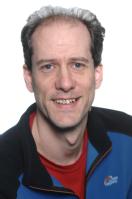 The yellow legged or Asian hornet – a voracious predator of honey bees and other beneficial insects – could rapidly colonise the UK unless its spread is combatted, according to new research by the Universities of Warwick and Newcastle, working with the National Bee Unit.
The yellow legged or Asian hornet – a voracious predator of honey bees and other beneficial insects – could rapidly colonise the UK unless its spread is combatted, according to new research by the Universities of Warwick and Newcastle, working with the National Bee Unit.
Professor Matt Keeling, from Warwick’s Zeeman Institute for Systems Biology & Infectious Disease Epidemiology Research (SBIDER), predicts that if Asian hornet nests are left to thrive in the UK, there could be hundreds of thousands of them in just over two decades – putting a critical strain on British populations of honey bees and other beneficial insects.
GP-based testing for HIV is cost-effective and should be rolled out in 74 local authorities
 Offering HIV testing to people at health checks when they register at a new GP surgery in high-prevalence areas is cost-effective and will save lives.
Offering HIV testing to people at health checks when they register at a new GP surgery in high-prevalence areas is cost-effective and will save lives.
That’s according to a study, published in The Lancet HIV, involving over 86,000 people from 40 GP surgeries.
Using a mathematical model which was co-developed by Professor Deirdre Hollingsworth at the University of Warwick that includes all the costs associated with HIV testing and treatment, the team show that primary care HIV screening in high prevalence settings becomes cost-effective in 33 years (according to National Institute for Health and Care Excellence [NICE] criteria).
International Biology Olympiad hosted by Life Sciences
The International Biology Olympiad (IBO), which takes place every year in different locations across the globe, sees pre-university students compete in a series of practical experiments and theoretical exams in what is the biggest biology competition in the world.
The competition, which spans a week in duration, takes place from 23 - 30 July, and - after a successful bid back in 2012 - will be taking place this year in the United Kingdom at the University of Warwick's School of Life Sciences.
